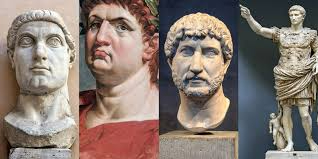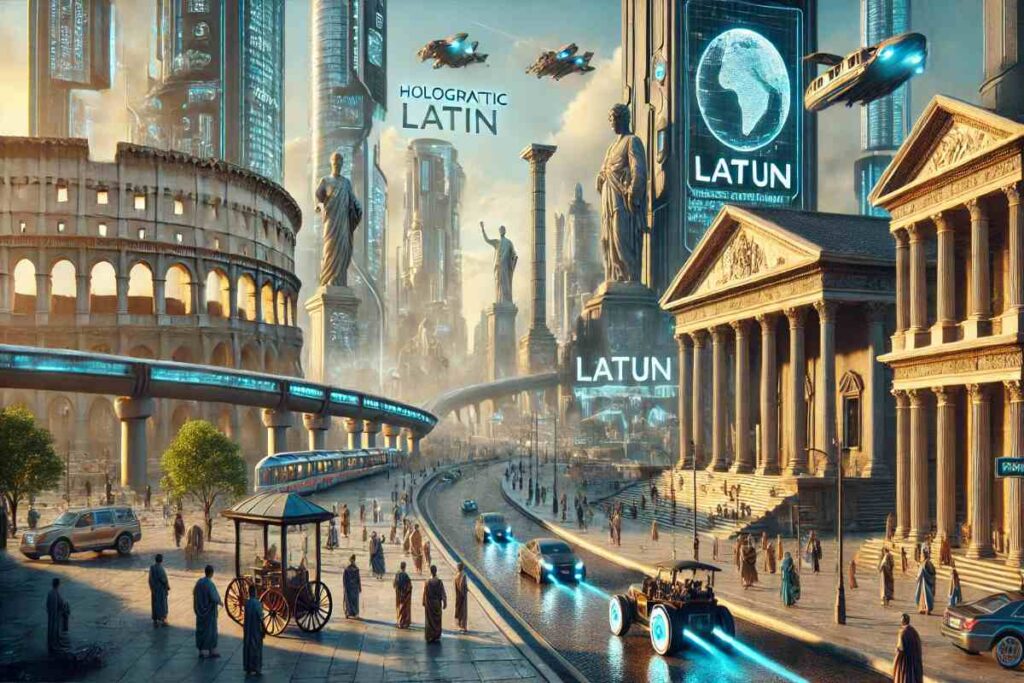History has it that the Roman Empire fell due to internal conflicts, civil unrest, and the rise of powerful generals like Julius Caesar. But what if we rewrote history, and the Roman Empire never collapsed, and Latin remained the universal language of Europe and beyond?
Though it has been thousands of years since the Roman Empire flourished, we can still see the impact of the ancient Romans in our art, architecture, technology, literature, language, and law. From bridges and stadiums to books and the words we hear every day, they have left their mark on our world. Before becoming an empire, Rome was a republic ruled by elected officials and a Senate.
The Roman Empire, known for its military, political, and social institutions, conquered vast amounts of land in Europe and northern Africa, built roads and aqueducts, and spread Latin, its language, far and wide. However, a period of unrest and civil wars in the 1st century BCE marked the transition of Rome from a republic to an empire.

During this period, Julius Caesar’s career took off so much that he became Rome’s dictator and took full power. Caesar, a celebrated Roman general and statesman, crafted an alliance with Marcus Licinius Crassus and Pompey to form the First Triumvirate and challenge the power of the Roman Senate.
After Crassus’s death, Caesar led his army into Italy, defeated Pompey, and claimed the title of dictator. Unfortunately, he was assassinated in 44 BCE. After his assassination, the triumvirate of Mark Antony, Lepidus, and Octavian, Caesar’s nephew, ruled.
Not long after, Octavian went to war against Antony in northern Africa. After his victory at Actium (31 BCE), he was crowned Rome’s first emperor, Augustus, marking the official start of the Roman Empire. Unlike Caesar’s reign, Augustus’ was distinguished by stability. The Roman Empire enjoyed peace throughout his reign from 27 BCE to 14 CE.
During his reign, Augustus established a principal form of government that combined elements of the republic with the traditional powers of a monarchy. Although the Senate still functioned, Augustus, as princeps, or first citizen, remained in control of the government. Sadly, Augustus had no successor; he had no son.
His nephew Marcellus, his son-in-law Agrippa, and his grandsons Gaius and Lucius each predeceased him. He eventually chose Tiberius and adopted him as his son in 4 CE. Tiberius became the first successor in the Julio-Claudian dynasty. He became the second emperor from 14 CE to 37 CE and ruled as an able administrator but a cruel tyrant.
Although a tyrant, Tiberius’s brilliant military career enabled him to expand the Roman Empire into modern-day Germany. After Tiberius, his great-nephew, Caligula (37-41), reigned as an absolutist. His short reign was filled with reckless spending, callous murders, and humiliation of the Senate. He had no regard for the powers that be and saw himself above everyone.
Afterward, Claudius came into power (41–54) and centralized state finances in the imperial household, consequently making rapid strides in organizing the imperial bureaucracy, but was ruthless toward the senators and equites.
Nero (54–68) left administration to capable advisers for a few years but then asserted himself as a vicious dictator. He brought the dynasty to its end by being the first emperor to suffer damnatio memoriae, meaning condemnation of memory, as his reign was officially stricken from the record by order of the Senate.
After the chaotic Year of the Four Emperors, Vespasian became emperor, and the Flavian Dynasty was established. Emperor Vespasian restored order and began building the Colosseum. His reign (69–79) was noted for his reorganization of the army, which made it more loyal and professional.
His reign is also popular for his expansion of the membership of the Senate, bringing in administrators with a sense of service; for the increase and systematization of taxation; and for his strengthening of the frontiers of the empire. However, the Roman Empire gained little new territories under Vespasian.
The Flavian Dynasty ended with Dominitian, Vespasian’s son, assassinated after his reign of terror. Then came Marcus Cocceius Nerva, Trajan, Hadrian, Antoninus Pius, and Marcus Aurelius, together known as the Five Good Emperors. Under their reign, the Roman Empire reached its greatest territorial extent, incorporating Dacia (Romania), Mesopotamia, and parts of the Middle East.
Their succession oversaw a golden age, which witnessed considerable expansion and consolidation. Following the internal conflicts that almost led to the downfall of the Roman Empire, Rome successfully reformed its governance. The Senate and Emperors co-governed effectively, preventing the power struggles that historically led to instability.
The empire enjoyed stability, the economy flourished, and great technological advancements were made. Roman engineers developed steam-powered machines, leading to an early Industrial Revolution. The empire also witnessed large territorial gains, as the Roman legions, equipped with advanced metallurgy and tactics, remained unmatched. They secured continuous conquests across Germania, Persia, and beyond.

In order to unify communication across its vast regions, the empire enforced a policy of “Latinizatio,” ensuring all conquered territories adopted Latin as their primary language. The Roman Empire became so rich and advanced that it embarked on a mission to “Romanize the world.” On this mission, ancient Roman legions discovered the Americas before Christopher Columbus, resulting in the Romanization of the West.
The imperial bureaucracy established a global university system to ensure Latin remained the dominant academic and administrative language. The Roman calendar, roads, and governance models influenced all societies, maintaining imperial unity. By the 16th century, the Roman Empire had become the richest and the most powerful empire in the entire world.
It had a solid government, mechanized agriculture, built railways, and expanded intercontinental trade routes. The Roman Empire never fractured, and the Imperial Senate oversaw technological and cultural progression. As a result, Latin remains the lingua franca of science, arts, commerce, and diplomacy. The concept of nationalism never emerged, preventing world wars.
Now, in the 21st Century, the alphabet and literature of Rome dominate education worldwide. The Roman Imperium now governs the world through a vast Senate, where representatives from all territories debate policies in Latin. Most countries speak Latin, uniting humanity under one tongue and preventing linguistic barriers.
Advances in space exploration, medicine, and artificial intelligence have all developed under a single, unified global order. Curabitur auimus (Chat GPT), arguably the most known AI in the world, was developed by a Roman scientist for Artificialis Intelligentia. The Roman Empire, having never fallen, continues to have a tremendous impact on art and architecture throughout civilization and continues to enjoy unparalleled prosperity and innovation.
You Might Also Like:
The Rise and Fall of the Mali Empire


